|
I have been three times to visit the fishing community on the Indus banks near Larkana, so I will tell this story in three parts. Part 1. The ancient Indus, yet a new world for me.For the first part of the story I must think back more than a year ago and pull the details out of the already dusty recesses of my memory. It was at the very beginning of January in 2015, during my first trip to Sindh. The landscape of my adoptive home, which is so rich in color and variety, especially around Larkana, was still fresh and new in my eyes. The Sindhi landscape still warms my heart and will always delight my soul, but there is a tug of nostalgia in me for that brief time when it was still completely new. And all was a surprise. What a precious feeling that is -- the complete newness of love. And though I will never be able to discover Sindh completely anew like that again, I hope I will always be able to remember that feeling. On that particular afternoon, I had already been dazzled by several new sights about and around Larkana, and I was feeling ready to head back home. But Papa Saeed had one more location in mind, just before sunset. We were riding in his Jeep, which is the vehicle Papa loves best, because it frees him of the shackles of having to drive on the real, paved roads of town (which roads, it must be said, are paved very poorly in many cases anyway). Our drive on that afternoon took us first onto a very sandy passage that still nonetheless resembled a road, but then soon down a steep hill that seemed not much more solid than a sand dune. Once down that stretch, the Jeep proceeded to bump and jostle its way across a rocky terrain that eventually opened up on the vast expanse of the Indus river bank. 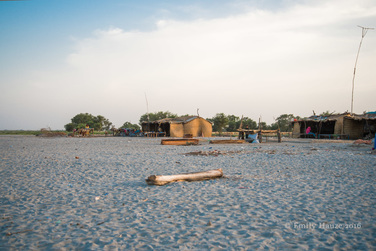 The nomadic settlement. The nomadic settlement. And what a view it is from there: the river Indus stretching wide but placid, its waters almost still, such that you might not even notice which direction the river was flowing. And alongside that peaceful giant of a river stretched a wide beach, not of sand, but of gentle silty dust, which at water’s edge becomes a grey slippery mud. Farther back from the river, where the terrain changes into a more typical mix of rocks and low plants, there arises a chain of huts, all ramshackle and bending low under the pressure of sunlight and the harshness of reality. These are the homes of the nomadic fishing community, who live in this majestic natural setting but in conditions of abject poverty. I cannot hazard a guess as to whether the beauty of the river and sky can possibly console these fisherfolk amid the starkness of their deprivation. The people who live here captured my interest at once, and we (Papa and I) seemed to be just as interesting to them. The menfolk usually linger in the background, rarely approaching, but the women (generally older ones) come forth readily to offer their greetings, and the children burst towards us in great curiosity and enthusiasm. The women are always kind, but they seemed a bit wary of us at first. Although the Sangi home is only a few miles from this settlement, it would appear that even Papa is an alien from another planet descending upon them, so different is their way of life. But Papa greets them as equals, addressing each woman as “adi” (respected sister). And if they seem surprised to be given such respect, he insists to them that “we are all Sindhis, aren’t we!” 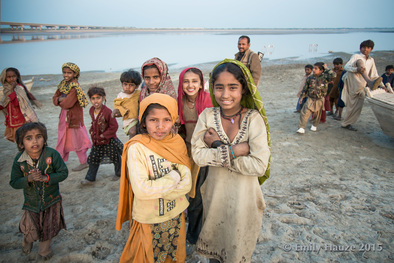 The beautiful faces that greeted us that day. The beautiful faces that greeted us that day. A bit of wariness is of course understandable, from people of such poverty, when they see a well-dressed doctor and his strangely white daughter and her armed guard, all barreling fearlessly over their terrain in a Jeep, even if it is our old and somewhat rusted one. I’m sure I would be quite wary if I were in their position. But that emotion never lasts long in them -- Sindhi hospitality and warmth is strong in their hearts, and they quickly warm to us, especially once they see that we are just visitors and curious ourselves. And the children, in any case, are never wary. They rush to surround us with their bright faces, and delight in showing us their nets and fishes and anything else they might have on hand. My attention was drawn to the still waters of the river, and especially to a few strange and still displays moored in them. There were a pair of wooden Indus boats, which are always a poetic image, especially when they float there, empty and waiting. But more surreal was the line of strange birds, all perched on a slender and uneven branch, which was raised by similar but vertical pegs to hover a foot or so above the water. The birds sit there in great solemnity, uttering no sound, and rarely moving at all. At first I had thought that they had simply paused there for a rest in the midst of their regular soarings, but looking more closely I realized that they were tied to the spot. I was even more unsettled to learn that they had been blinded, though I could not understand the reason that was explained to me at the time. I later learned that they are held there for the purpose of luring other birds to the spot to be caught. And thus, as sometimes happens, a scene that appears magical upon first glance turns rather darker upon inspection. 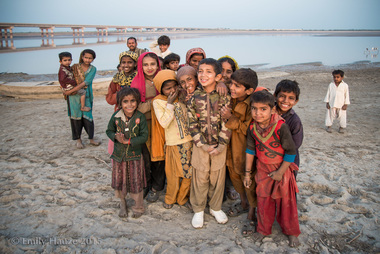 Baji is at the center, grinning directly at the camera. Baji is at the center, grinning directly at the camera. But I could hardly brood on that notion when surrounded by such bright children, who circled around us with increasing excitement. One particular girl, probably eight or nine years old, caught my attention somehow. Though she had no dazzling beauty, she stood out from the crowd because of her honest, open demeanor, a special friendliness, and, it seemed to me, a noticeable intelligence in her eyes. She was especially plainly dressed. All the children wear the clothes of the poor, of course, but some of the girls nonetheless glow with bright colors and their own natural glamour. But this girl made no effort at glamour; she wore her dupatta tightly around her forehead in the manner of a kerchief. But I haven’t fully described her what drew me to her. Perhaps you, dear reader, will recognize the feeling of being in the presence of someone who seems especially real to you. Something about a personality that stands out against others. It wasn’t the feeling of having known her for a long time -- I didn’t feel like I knew her at all. But I felt nonetheless like she was someone worth knowing, someone worth getting to know. I asked her name -- that was one of the few full sentences of Sindhi that I could already muster at that time -- “tunhjo naalo chhaa aahey?” But I was surprised, and thought perhaps that I had misspoken, when she responded simply: “Baji.” Baji is a word commonly used for “sister” (usually, an elder or respected sister) -- could this really be her name? “Tunhnjo naalo Baji aa?” I repeated somewhat haltingly. She nodded with her simple smile, and the other children confirmed that, yes, this was Baji. And I was satisfied that at least this was the name she goes by -- though surely she must have some other proper name as well. But to this day I only know her as Baji. Pics taken just before we left on that day. Baji is near me in all of them (wearing the striped dupatta). You can see her vibrant expressions, as well as those of the other children, who surrounded me with such genuine and infectious joy. I don’t remember much more from that first visit to the Indus fisherfolk. The rest has blurred into a general impression of the calm river, the laughing children, the sky and the soft sand. And I gave a special farewell to Baji before we returned to our Jeep to climb back up the dunes towards the city. Part 2. Royal throne of fishing nets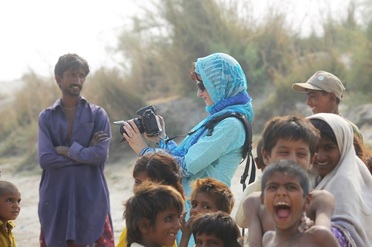 I was dressed more like a Sindhi woman this time. I was dressed more like a Sindhi woman this time. My second visit to the fisherfolk, in November 2015, was one of the loveliest of all my experiences in Sindh. I wrote it up for my Facebook page at the time, and since the feelings of the day will be freshest in that telling, I will copy that text here, but I am expanding it to fill in some details that I omitted at the time. We arrived this time in early afternoon, and the sun was very bright overhead. I was eager to see the sweet children of the fishing community again -- particularly my favorite little girl, Baji. As soon as we were out of the Jeep and among the children, I scanned the group for Baji, and didn’t see her among them. We asked for her, and there was some confusion as to her whereabouts -- she was on the other side of the river, by some reports, or she was inside, or busy with something. These answers could not all be true, so we kept asking. And so the message that Baji was being summoned by these foreign visitors began to travel more quickly among the fisher folk, and eventually it had its effect: and we saw on the horizon that Baji herself was running along to join us. 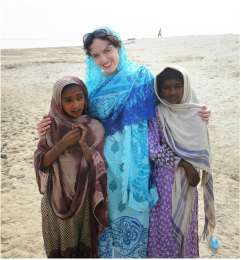 Distraught Baji Distraught Baji But Baji's face revealed an emotion quite unlike the joyful confidence that I had expected. She appeared distraught and worried. Although she didn’t seem to be crying, she was almost gasping with some sort of tumultuous emotion. I gave her a hug, which she accepted gently, but her mood remained troubled, and this troubled me even more. I tried to find out from Papa what might be worrying little Baji. He did not seem to make much of it. “ACTUALLY SWEET EM,” he said, “SHE IS VERY EMOTIONAL TO SEE YOU AGAIN.” “It is not the emotion that I might have hoped for,” I said, but I’m not sure Papa heard me. There was an especially large group of excited children circling round us this time, inviting us to walk with them along the riverbank. I reached for Baji’s hand, and felt some relief that she was willing to offer it; another girl took my other hand, and the whole bright and bubbling group of us began our stroll. The children were so buoyant with energy that I hardly noticed when Baji began to sink back a bit into the crowd.
I walked barefoot with the children back up the hill, and I am thankful for that short walk, because it was a sensation I had never before experienced. My feet expected the familiar grainy feeling of beach sand, interspersed with tiny rocky hazards. But this was nothing like ocean sand: it was infinitely more gentle. Even that firmer terrain where the mud has mostly dried into a clay, the texture is fine and silky and a bit spongy to the step. My feet are unusually tender and uncallused, not used to any prolonged barefootedness, so I was expecting this walk to be uncomfortable if not painful for me. But it was quite the opposite: feeling the banks of Sindhu beneath my steps was purely delightful. 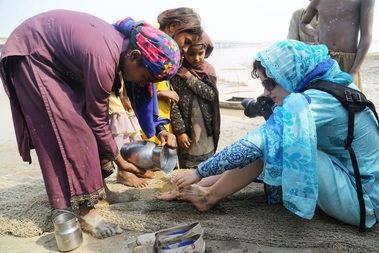 We were led to a place where some fishing nets were spread on the ground, which we used like a rug. There was a great beauty in those strong fishing nets, the beauty of sturdy simplicity, and I was as honored to sit on them as I would be on the finest royal carpet. There was tea prepared for us, I was told, to my great delight. But before we drank it, the children tended to my muddy feet. And this was the truly remarkable event of the day. One or two of them brought a metal pitcher full of water, which they slowly poured over my feet until the mud had been washed away. Another child took my muddied shoes and rinsed them off in the Indus. They tended me with such love and simplicity -- I am unable to find words to describe this feeling of communion. One might assume, seeing the photos out of context, that they were serving me as one high above their station, or that I had demanded such service, but that was not the situation at all. I wouldn’t have even thought to ask for such gentle service as they provided, nor did I wish them to feel in any way inferior to me. And they did not treat me as an outsider whom they were forced to serve, but more like a respected elder sister or aunt they had always known and loved, as one of their own. 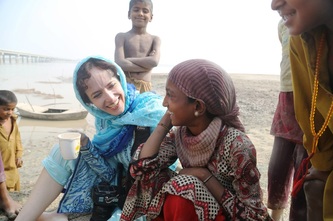 with a happier Baji. with a happier Baji. Once my feet were clean, I was handed a cup of tea, which was as rich and delicious as always here in Sindh. I asked Baji to come sit next to me, which she did, and I was deeply relieved that she seemed to have overcome her earlier fit of distress. A small boy brought us a vat half-filled with water and various shining fish that he had caught that morning, just to show us his fine work. And the children were circled all around us, and their small forms also provided us a kind of dappled shade against the bright sunlight. And their sparkling laughter had the same kind of dappled effect upon my ears: somehow their laughter seemed more musical than most, with a bright range of tones like a fine Javanese gamelan. I asked Papa to take a quick video to capture that sound, though (as so often happens) the laughter had diminished by the time he heard me and started the camera rolling. As a result, much of the laughter you hear on the video is that of Papa himself, hoping to urge the children into a repeat performance of their previous chuckles. But you can get a sense of those sounds if you listen closely between Papa’s prompting guffaws. This was the kind of moment that cannot last long, by its very nature.... inevitably we were soon up again and getting back into the Jeep.... but all those sensations still live in me: the velvety springiness of the riverbank, the texture of the fishing nets, the glint of the newly caught fish, the silvery laughter of the beautiful fisher children.
|
Image at top left is a digital
portrait by Pakistani artist Imran Zaib, based on one of my own photographic self-portraits in Thari dress. AuthorCurious mind. Archives
September 2020
Categories |
emily s. hauze
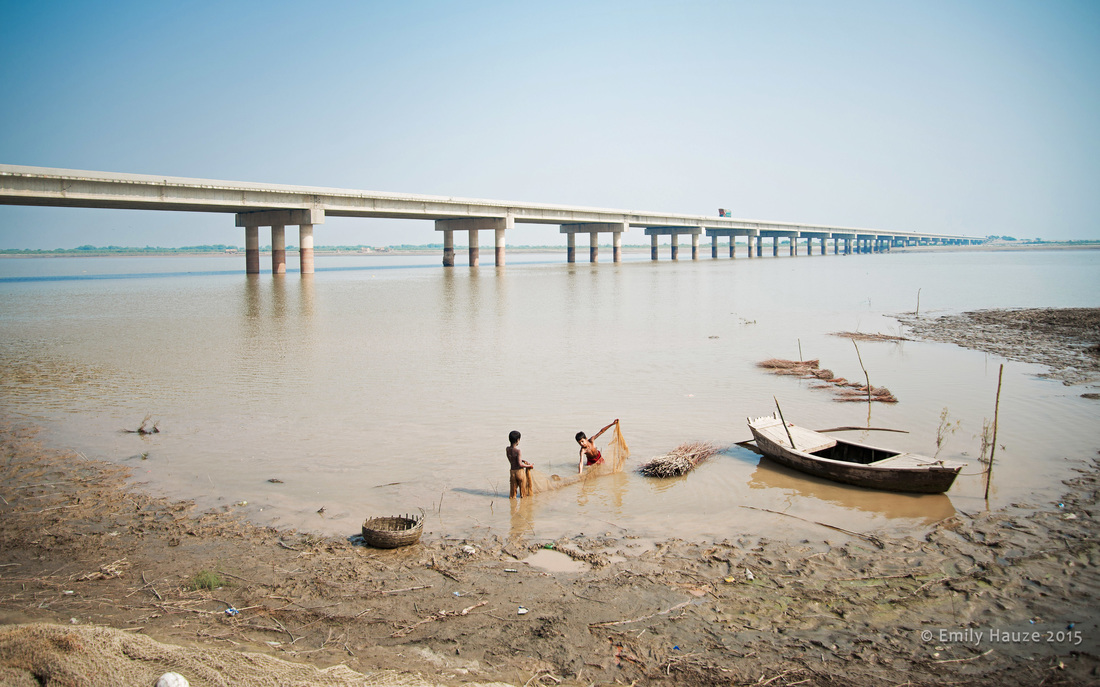
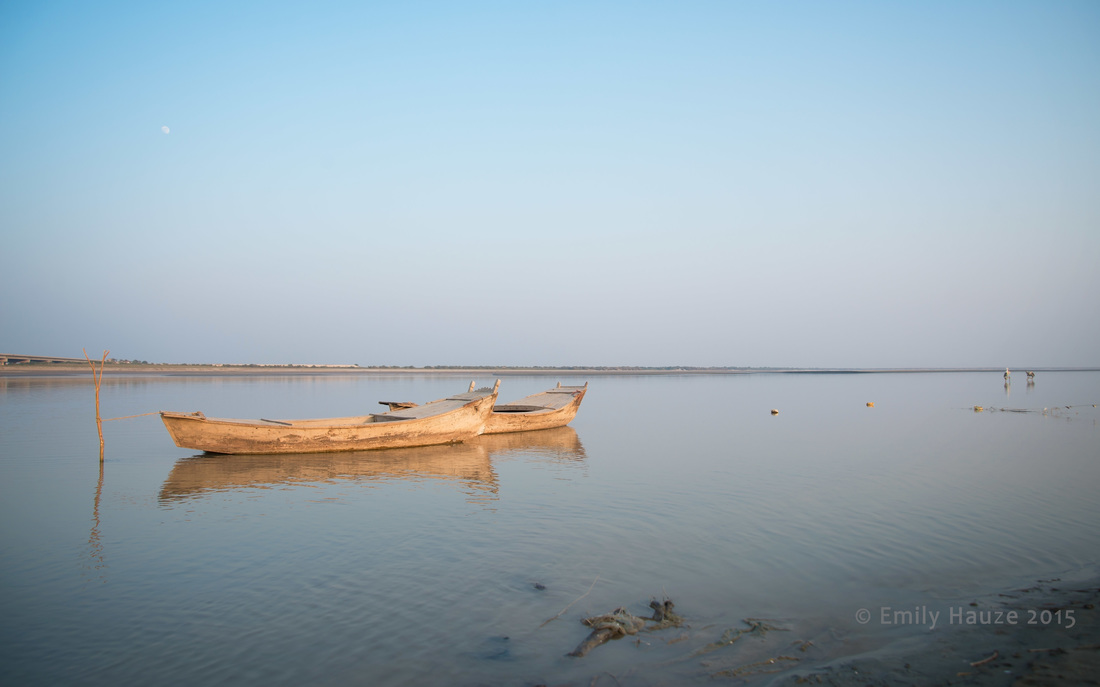
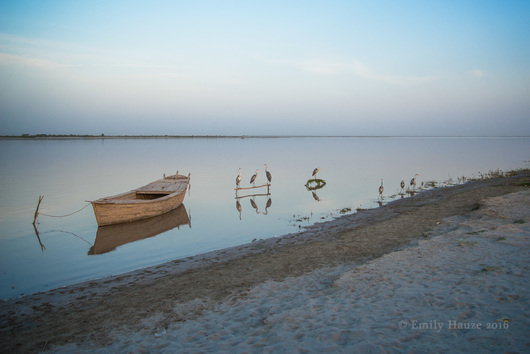
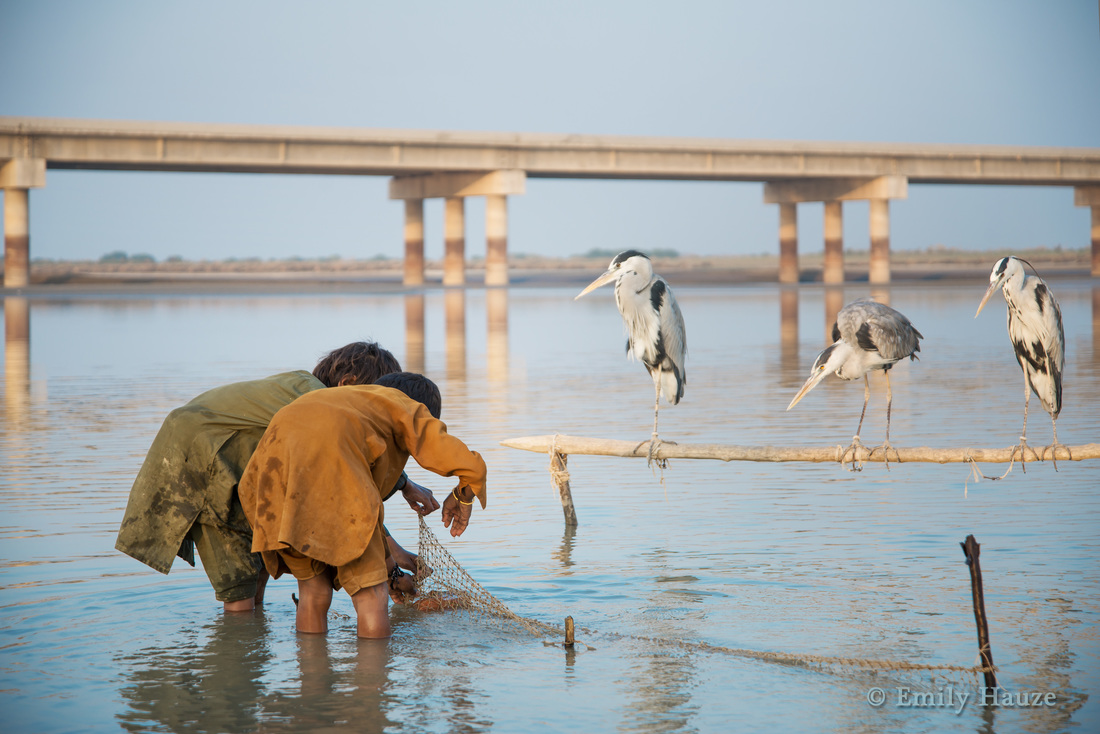
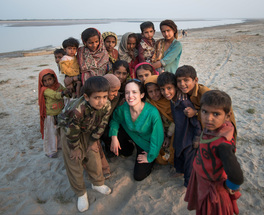
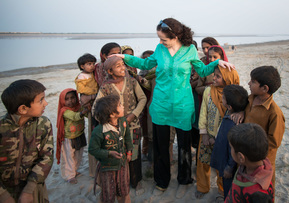
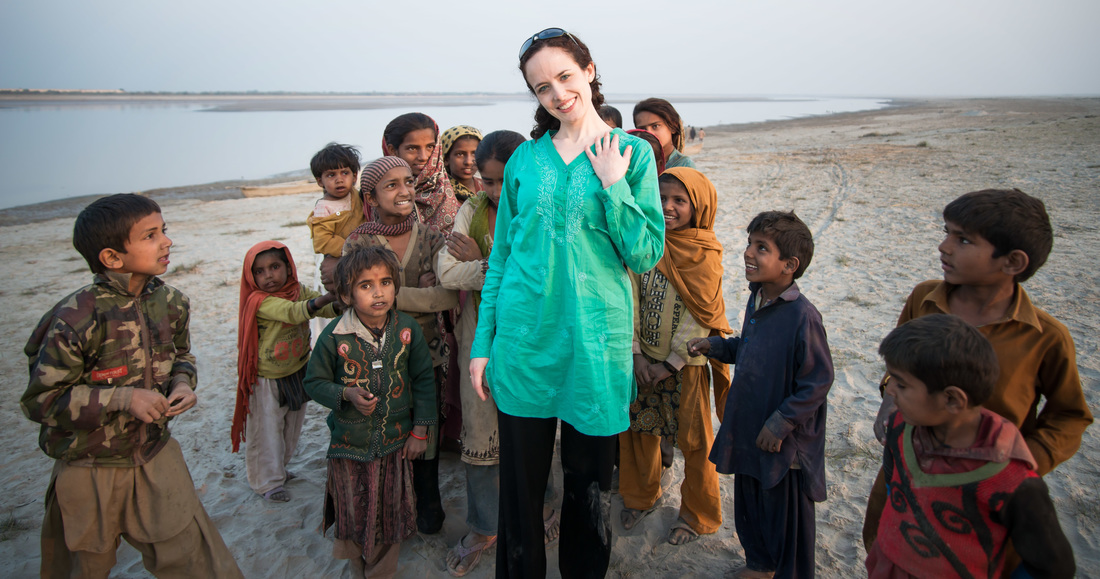
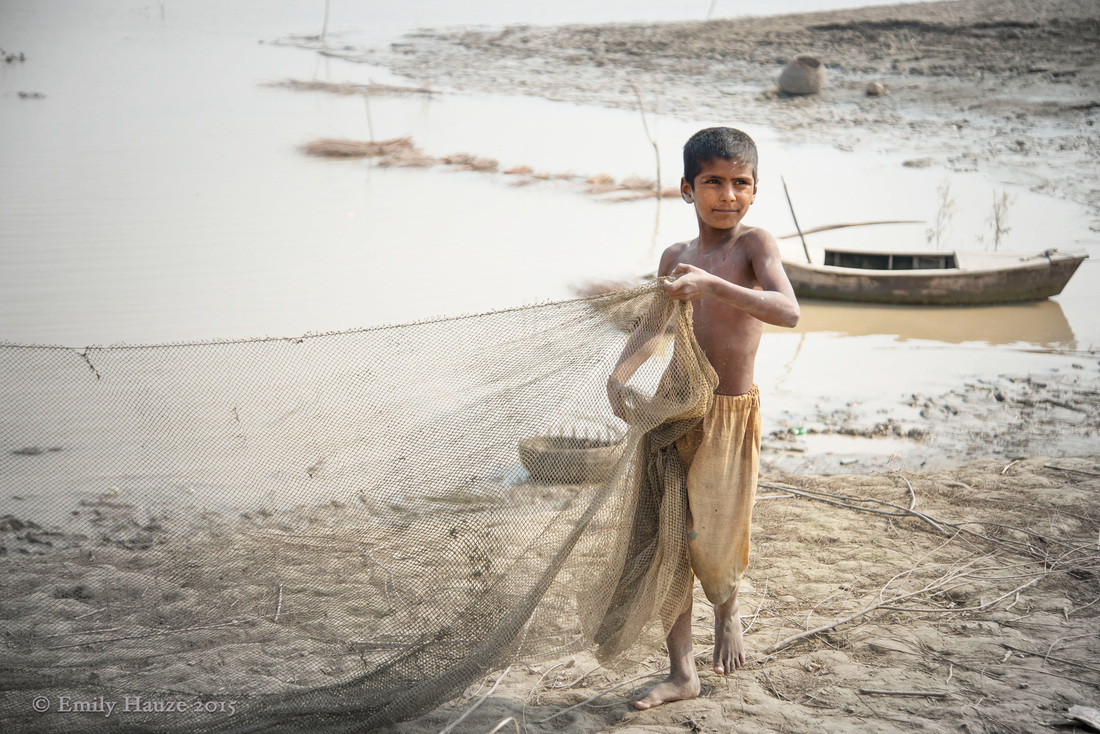
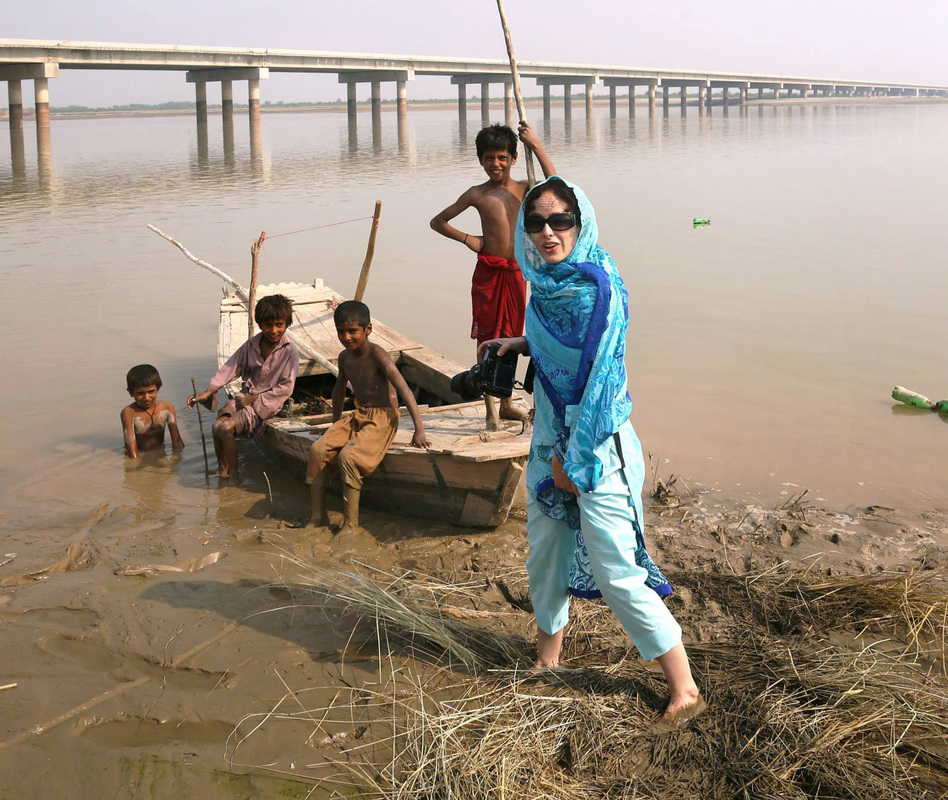
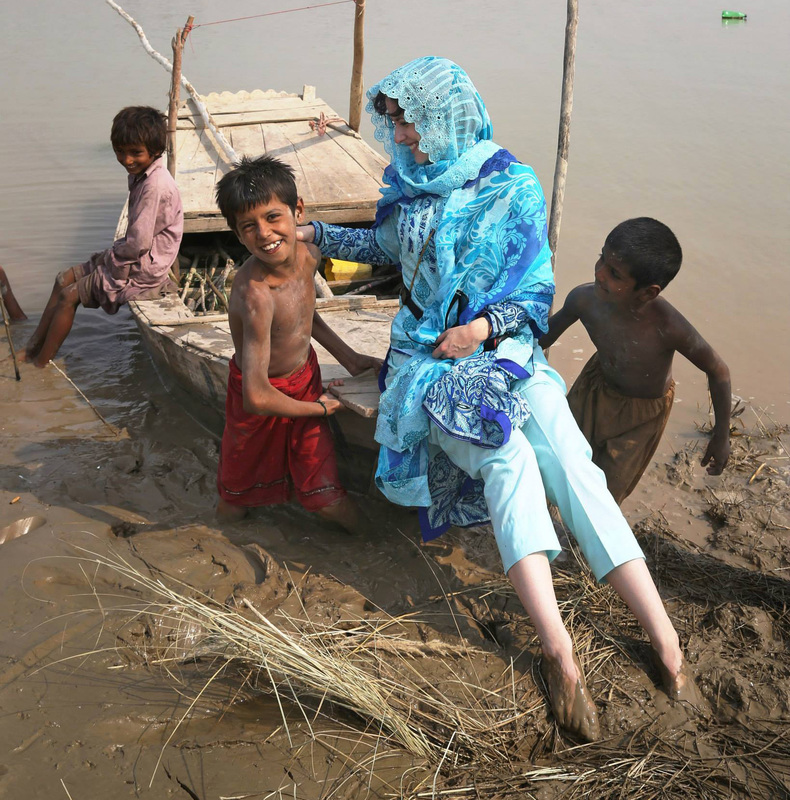
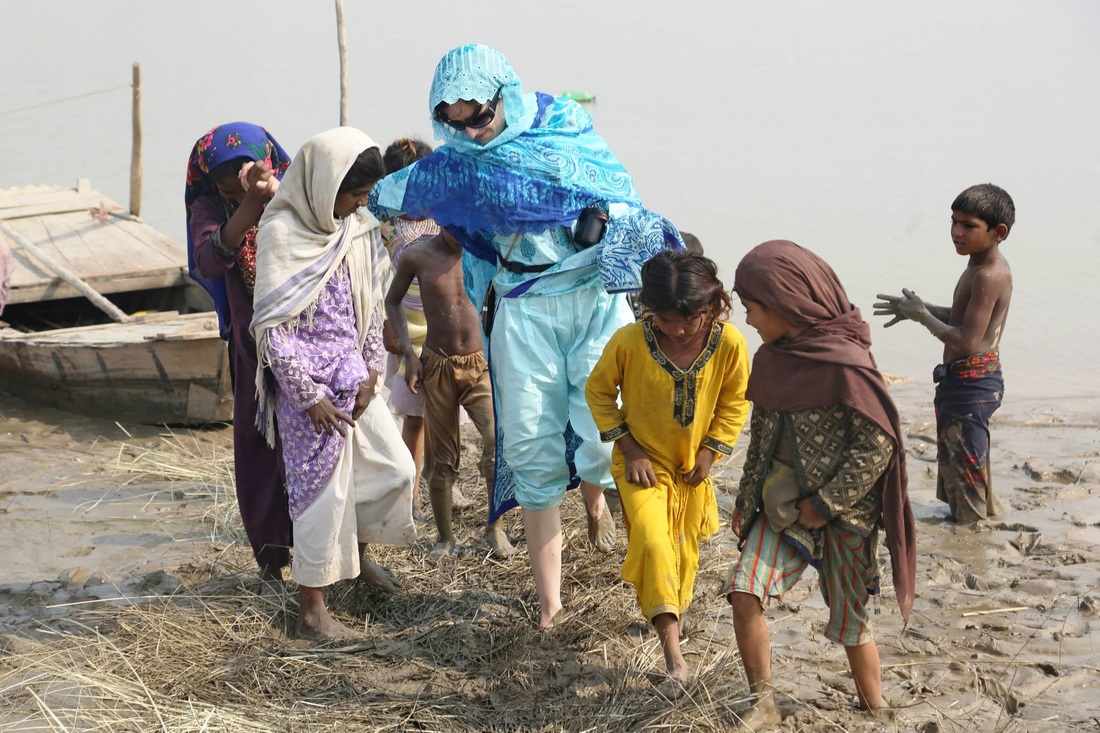
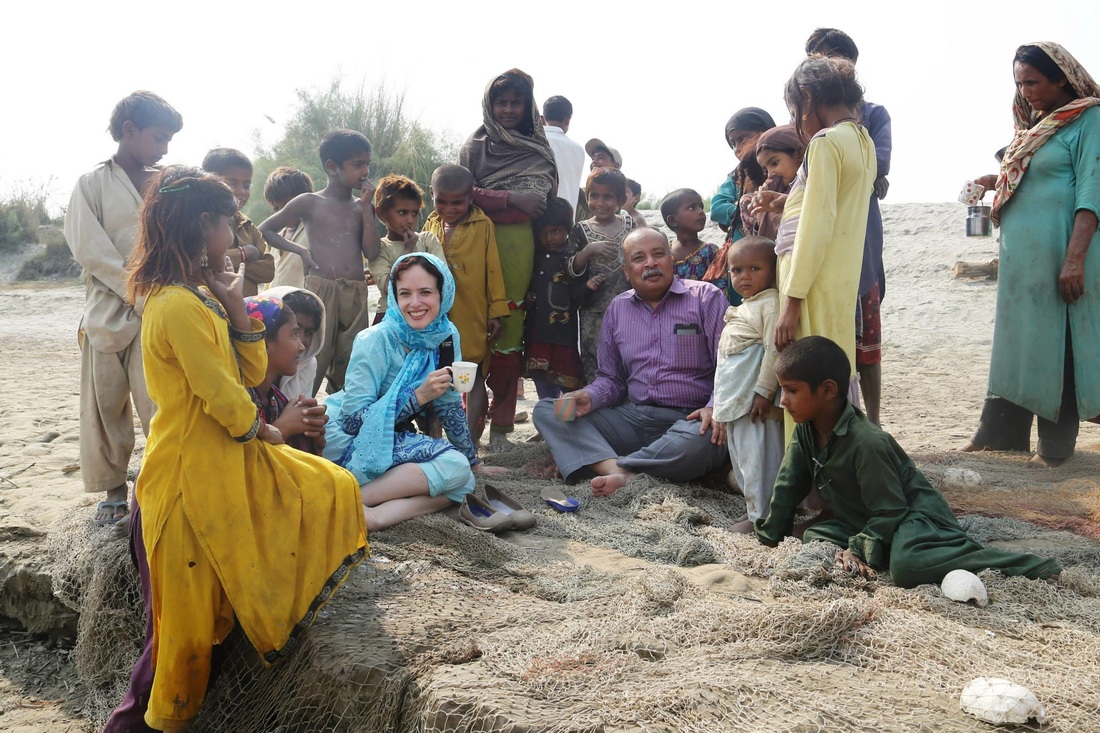
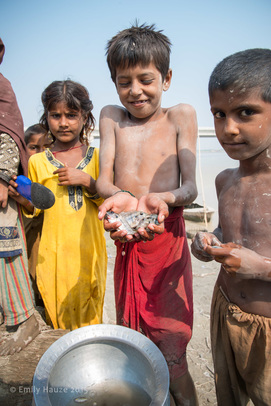
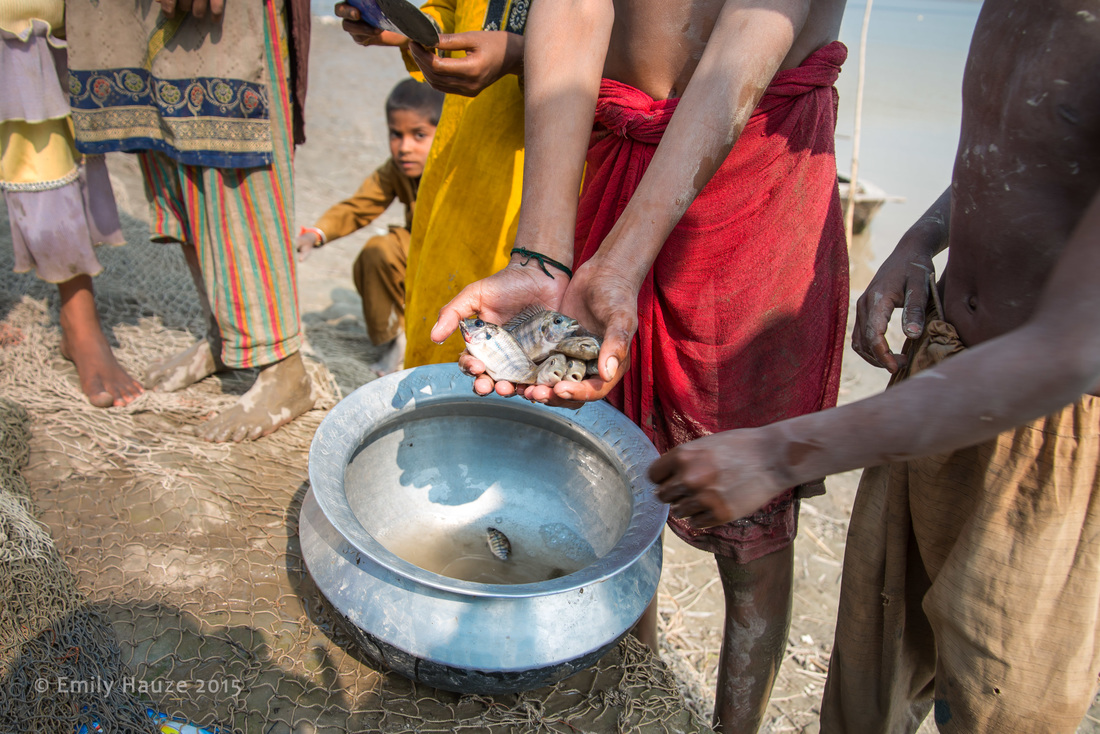
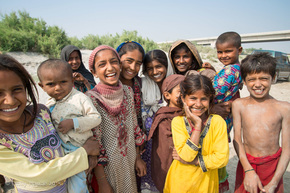
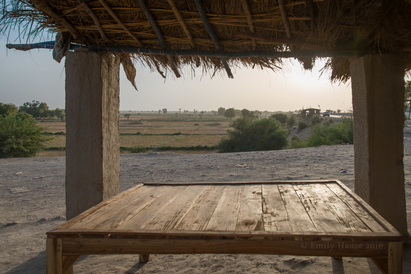
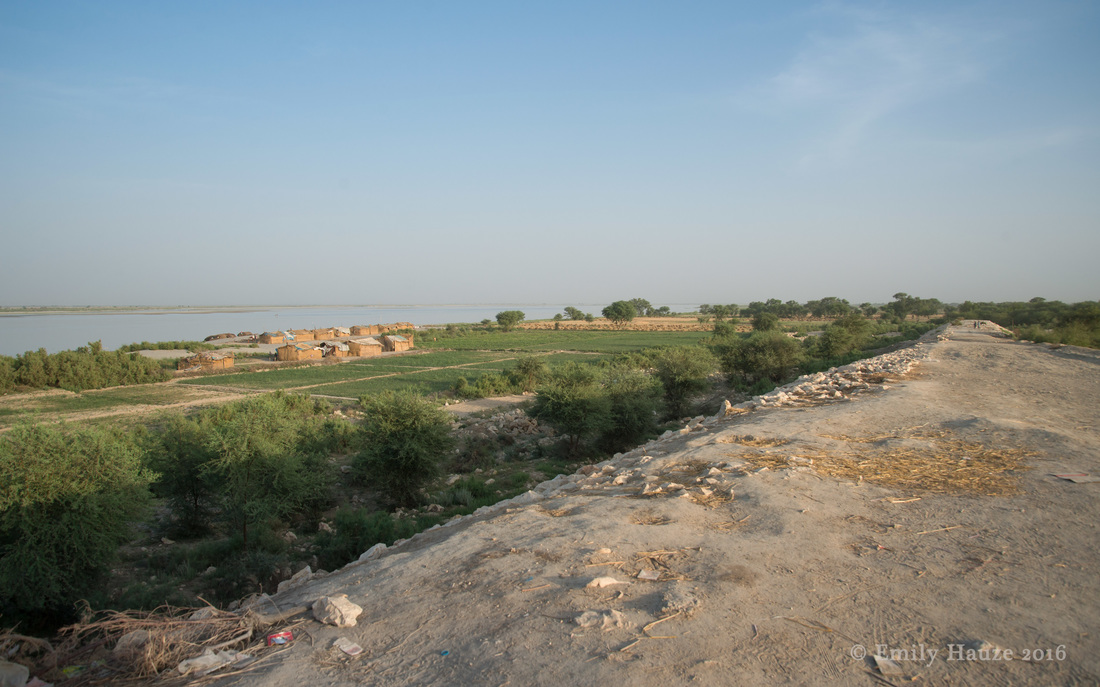
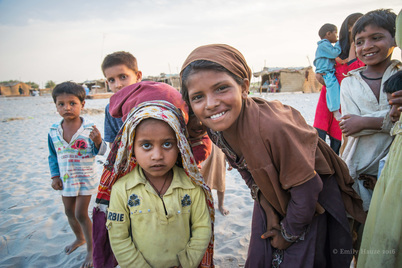
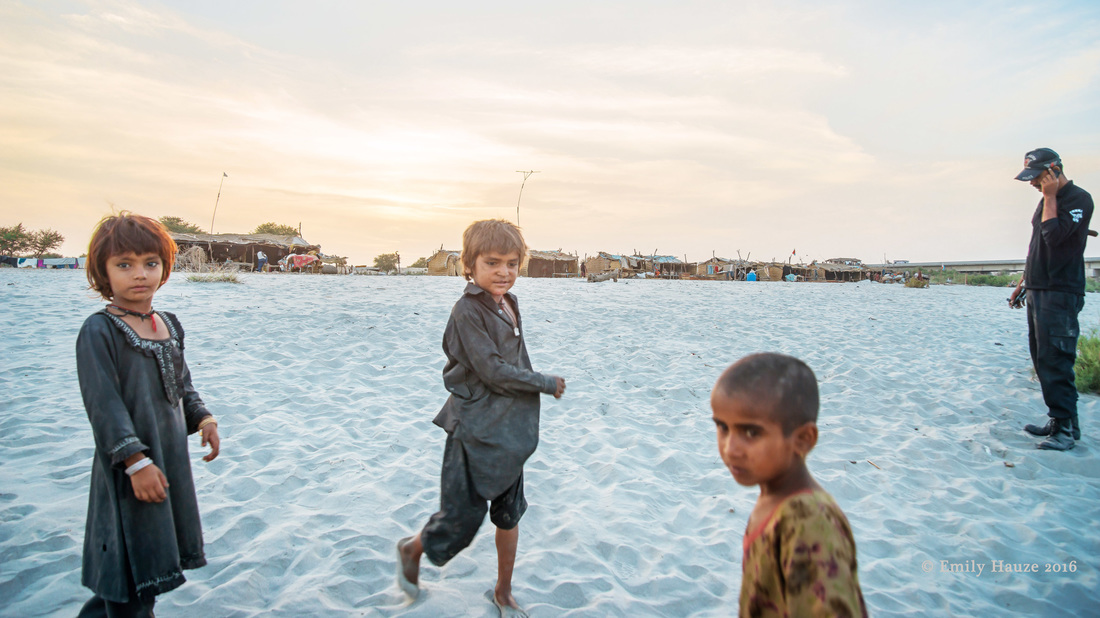
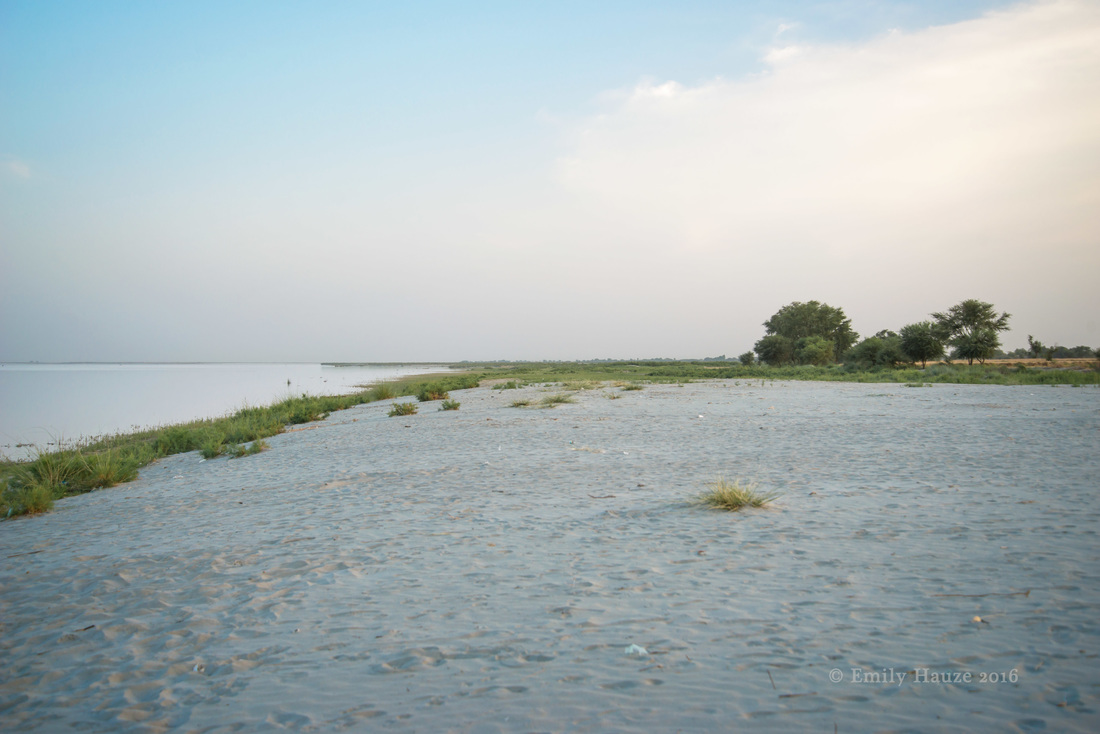
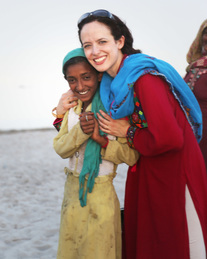
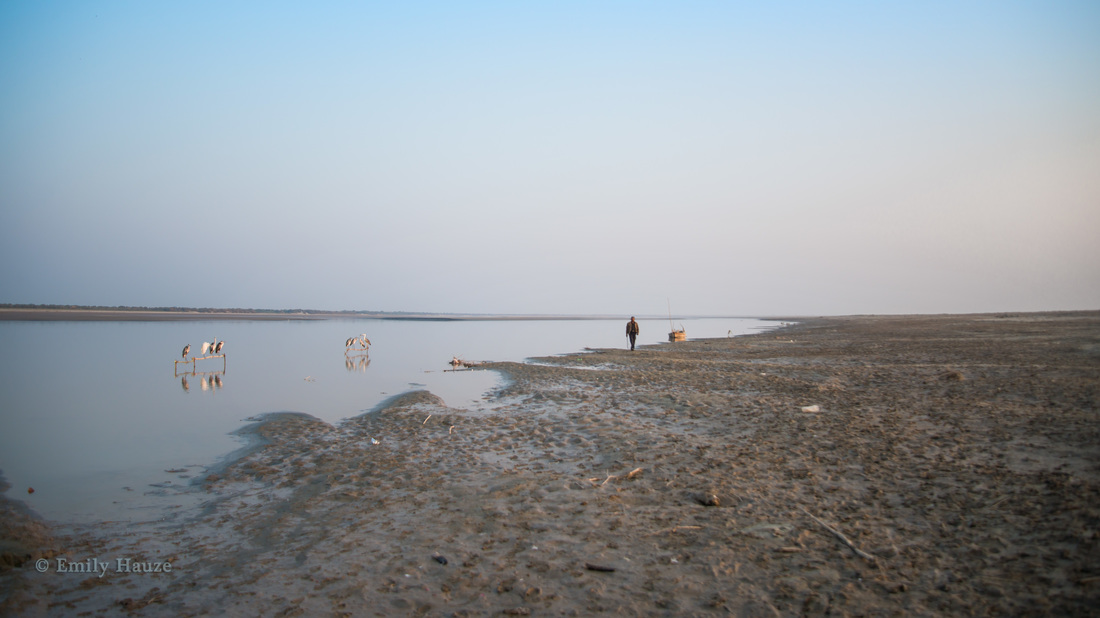
 RSS Feed
RSS Feed
